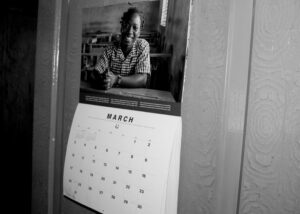Writer claims argument against Al Najd based on ‘factual error’
Re: “MCC should consider new partner in Gaza” letter, March 17, page 8.
Andrew Pinnell’s letter contains a factual error that negates the argument. Despite Uri Schor, a spokesman for Israel’s Water Authority quoted in the Christian Post, the evidence is clear that Israel’s Wadi Sofa Dam is one of a number that diverts water from the HaBesor stream originating in the Hebron Hills and the Negev Desert from flowing into Wadi Gaza, that was opened causing flooding in a part of Gaza. Pinnell bases his criticism of Mennonite Central Committee and its Gaza partner, Al Najd Development Forum, on an ill-informed source. I have gained an appreciation for the humanitarian work Al Najd does and applaud MCC for its partnership.
Johann Funk, Penticton, B.C.
Christians must continue to call all sins ‘sin’
We here at Hague Mennonite Church have been observing what is going on in our denomination, and it saddens us to see the devaluation of the Word of God that is taking place.
It seems that there is an effort being made to make peace with the world. Jesus clearly states that if we want to be friends with the world, we become enemies of God (James 4:4). We have noticed a great effort to bring peace between Christians and non-Christians by the churches and leadership. That in itself seems noble, but in reality it is extremely dangerous.
As Christians, we should not be so afraid of being persecuted as we presently show that we are by simply accepting the culture that is being pressed on us by the world. Because of our apparent “need” to be politically correct, we are compromising our convictions.
The Being a Faithful Church (BFC) process is in discussion about this whole sex issue: what to do with homosexuality and the lesbian/gay/bisexual/transgendered/queer (LGBTQ) community. Should we not do what Jesus did: be loving, not condemning, and then tell people to sin no more? Judgment and punishment in hell will still come to all those who will not repent, will it not?
Assuming we do not want to change the Word of God, why for heaven’s sake do we have to dialogue about things that are crystal clear and obvious to begin with in the Word? Why do we not have the courage to believe the Word? Why do we have to start accepting worldly culture into our churches? Why should we now accept sexual immorality—what God calls “abomination”—as not being sin anymore? Could someone explain that to me, please?
The difference with homosexual sin is that it doesn’t want to be called “sin,” and that is the problem. In fact, it is reason enough many churches have left and will leave Mennonite Church Canada. Unless the leadership repents and starts calling sin what is according to the Word of God, evil will creep into the churches and they will die!
Artur Esau, Hague, Sask.
Artur Esau is pastor of Hague Mennonite Church.
U.S. pastoral controversy about gay marriage, not sexual identity
In March, I was visiting some Mennonite communities in the U.S. Midwest and heard about the decision of Mountain States Conference to license as Pastor Theda Good, a woman in a same-sex relationship. I talked to my hosts and read up on the controversy.
I noticed how frequently it was framed as “licensing a lesbian pastor.” This troubled me. The same phrase was used in the April 14 editorial of Canadian Mennonite, “Of genitals and gender.” To my knowledge, there is no procedural call to block lesbians from ministry. At issue is not the fact that Good is a lesbian, but that she is married to a woman.
The difference might seem minor, but it is very significant that so many writers have been unable to articulate the difference between actions and identity. This wording targets her personally as “the problem,” not the conference’s definition of marriage. The difficulty is that her marriage seems to contradict Christian teaching.
To make an imperfect analogy, let us pretend that an individual from the Middle East professing Islam had been appointed pastor. If this were reported as “licensing an Arab pastor,” I hope we would recognize imprecise and misleading terminology. There is nothing to stop an Arab being a pastor, but we might ask how a Muslim individual can pastor a Christian congregation. Beyond misleading, this terminology is dangerous, feeding dominant-culture Islamophobia that conflates “Muslim” and “Arab” as a threat, just as defining an individual’s sexual identity as a problem to the church feeds homophobia.
This is why I think accuracy is so important. Queer people already face a struggle for acceptance in the church and the world, even when they stay closeted or celibate. Naming them as the problem exacerbates the challenge. I know that if God had called me to be both a husband and a pastor, I would not want to have to choose between these blessings.
Peter Haresnape, Toronto
Peter Haresnape is a member of Christian Peacemaker Teams and Toronto United Mennonite Church.
LGBTQ, aboriginals both unaccepted by the church
Re: “Genitals and gender” editorial, and “A cry for equality” column, April 14, pages 2 and 10, respectively.
Regarding the editorial, we are all made in God’s image and are his children. What would you do and how would you feel if this was you or your child, and the church was not accepting of you as a person? Lesbian/gay/bisexual/transgendered/queer pastors like the one mentioned are as committed to the Creator and the church as anyone else, maybe more so because of what they have gone through. In my opinion, sexual orientation should not matter if your heart is right and true. Sexuality is part of what you are, not who you are. I know there will be many that disagree, but put yourself in their/our shoes. Feel their/our heart.
Brander McDonald’s column brought up many good points. Some of our first peoples have their issues, we can all agree on that, but that is a stereotype. There are many who have gone to university or stepped up and are doing very well. Some of us are learning the old teachings and it has strengthened our faith. My smudge pot reminds me that I need to give thanks to the Creator, who gives us our path to walk, and to Mother Earth, who gives sustenance. There is much to learn from our native sons and daughters!
Why are these two sets of people neither truly accepted or trusted by the larger church body? Why are we so afraid of someone who is “different”? In reality, we are all different. We need to learn to trust each other!
God made each of us this way for a reason. Let us embrace and accept each other for who we are, warts and all. While praying and smudging for a more open church, I, for one, will keep learning and respecting those around me.
Mim Harder, Uxbridge, Ont.
Reader feels magazine is ‘going down the very wrong path’
This letter has been quite a long time coming, but finally I just have to say how I truly feel. I feel that Canadian Mennonite has been going down the very wrong path for some time, and under the new editor this sense has increased greatly in the past year . . . until I can bear it no longer.
I find that after having read an issue typically I feel both irritated and alienated. There are still some good articles in it, but overall the sorts of articles and the editorial slant that I see has changed the balance for me and the magazine now really turns me off.
I actually pay for The Mennonite from Mennonite Church U.S.A. because it is worth it. The perspective typical of the U.S. Mennonite is far more in keeping with my views. Wish I could be more positive, but then I would be dishonest.
Heather Whitehouse,
Niagara-on-the-Lake, Ont.
Reader feels MC Saskatchewan misled delegates
We have heard in our church, Fiske Mennonite, and read numerous articles in Canadian Mennonite that sexuality was, and needs to be, discussed within churches under the guise of the Mennonite Church Canada Being a Faithful Church process. We have also been informed that there is no predetermined outcome of these discussions. Yet it seems we are being manipulated and ill informed of decisions being made to obtain desired results.
Imagine my surprise after the MC Saskatchewan assembly was over to read in Canadian Mennonite that a safe church policy had been adopted (March 31, page 18). Part of that document read, “No person will be granted a position on the basis of age, gender, cultural background, physical appearance or sexual orientation.”
I then went back to our church and read the delegate booklet. Nowhere could I see information that anything controversial would be coming up at the meeting. Was this an omission? Or a deliberate attempt to hide this from our church and possibly the delegates we might have sent?
I wonder if the delegates who attended would have been the same ones representing their churches if the churches had known there was a controversial subject to be discussed and voted on.
Trust and integrity, I feel, are two main character ingredients for people and organizations. The question begs to be answered, “Can we trust the leaders of MC Saskatchewan when they are not upfront with even meeting agendas?”
Now, with this statement as part of MC Saskatchewan church policy, are we gullible enough to think this will not be brought forward as an example as this sexuality debate goes forward?
I am a regular church attendee and I have watched with interest to see how MC Canada would deal with this issue. I am disappointed to see the church follow the norm of many other churches: talk about it, delay and then talk about it some more.
I can see how this issue is hurting many people in the faith community. But do our faith values and the role of Scripture change just because we are uncomfortable? Or do we compromise until there is nothing left, or wait until people die, give in, or vote with their feet and walk away?
Ray Mutlow, Rosetown, Sask.
Disclaimers for all writers would be ‘gratifying’
Re: “Disclaimer to be included in John Howard Yoder books,” Jan. 6, page 28.
I am waiting for more disclaimers from MennoMedia and likeminded persons. Surely, to be consistent and fair, other authors should be subject to the same scrutiny and judgment as Yoder. Diligent research of writers’ lives, past and present, should, I believe, provide a veritable series of disclaimers.
How gratifying this could be.
Audrey Musselman, Waterloo, Ont.
Swearing not necessary to be funny . . . or dramatic
In “The 100 percent clean comedian”, March 17, page 4, Matt Falk demonstrates a principle that is oft forgotten by Mennonite and other “Christian” entertainers: Drama can be expressive without the use of profanities. Comedian Ted Swartz does this as well.
Ivan Unger, Cambridge, Ont.






Leave a Reply
You must be logged in to post a comment.